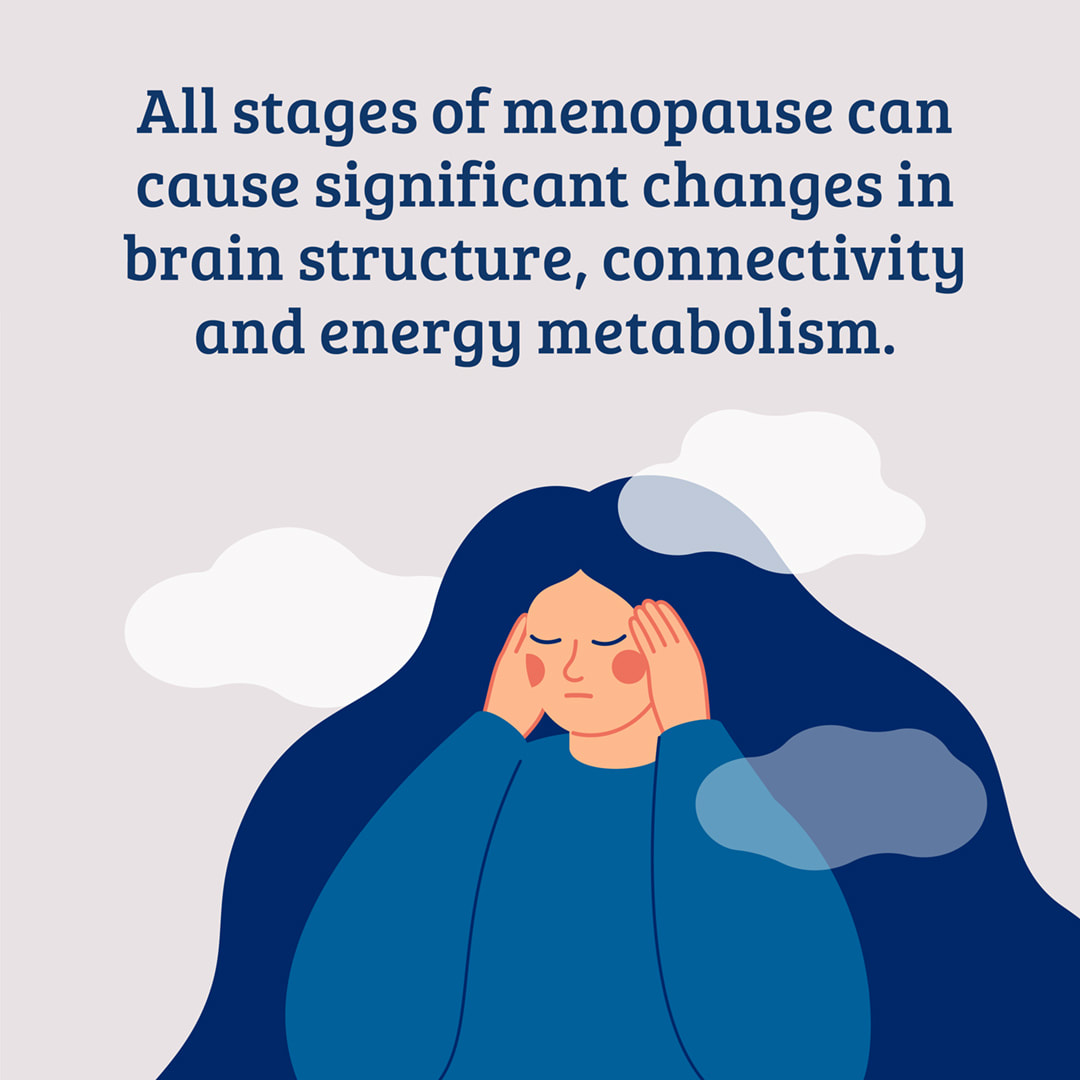And this study’s overall results affirm that human menopause is a dynamic neurological transition, which significantly influences “the brain structure, connectivity, and metabolic profile during midlife endocrine aging of the female brain.”
Through multi-modality neuroimaging, scientists looked at what they noted were substantial differences in brain structure, connectivity and energy metabolism” at all MT stages. The effects involved brain regions responsible for higher order cognitive processes and were specific to menopausal endocrine aging rather than chronological aging. They noted that brain biomarkers stabilized post-menopause and gray matter volume (GMV) recovered in key brain regions for cognitive aging. Other findings showed amyloid-B deposits were more pronounced in peri- and post-menopausal women carrying the APOE-4 gene, which as we’ve discussed in other articles has been determined to be a major genetic risk factor for late-onset Alzheimer’s disease. It’s important to communicate any concerns you may be experiencing at any age – as this study shows us, our brain’s health can be affected by various endocrine changes throughout women’s lifetimes. So be proactive and talk to your doctor if you have questions and feel free to reach out to us if we can help. Learn more about the APOE gene and your brain at: https://www.suzannegazdamd.com/scientifically-speaking1/the-apoe-gene-and-its-role-in-cognitive-decline
0 Comments
Your comment will be posted after it is approved.
Leave a Reply. |
AuthorDr. Suzanne Gazda, Integrative Neurology Archives
February 2024
Categories |

 RSS Feed
RSS Feed